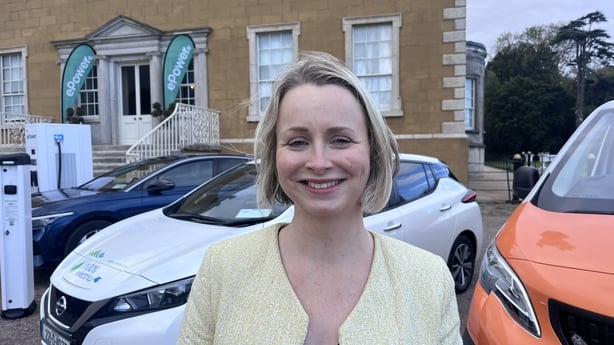Dublin’s four local authorities are rolling out 200 electric vehicle chargers that will increase the number of public power points in the capital by 50%.
The fast chargers will be located at local authority facilities such as libraries, parks, car parks, community centres, swimming pools and and sports centres from early next year.
The government body responsible for encouraging more people to switch to electric vehicles said it should encourage a better take-up of EVs.
It Is projected that Dublin requires 8,000 electric vehicle charge points over the next six years to cater for electric vehicle owners, particularly those without access to home charging.
Dublin’s local authorities have committed to providing more than half of these
They announced the rollout of 200 public charging points over the next two years, which will result in a 50% increase in the capitals charging infrastructure.
David Storey, Director of Environment, Climate Change and Active Travel, Fingal County Council, said chargers will be spread across 40 locations around the city and county.
“They’re in local authority owned land, so you have swimming pools, libraries, regional parks and other locations similar to that. And they’re aimed at all types of people, so people who obviously don’t have charging at home themselves, and people who are visiting these locations,” he said.
Other local authorities are due to follow Dublin’s lead according to ePower CEO John O’Keeffe.
“It’s very unique. It’s the first time it’s happened in the country. So it’s going to make EV charging and EV driving accessible and far easier for the population of Dublin.
“They’re fast chargers, 100 kilowatt plus, so in 20 minutes they’re going to get a good top up. The average journey is 16km so these chargers are more than capable of filling you up or give you enough charge to move on and complete your journey,” Mr O’Keeffe said.
Aoife O’Grady, Zero Emissions Vehicles Ireland, said she believes the initiative will help with EV take-up which has slumped in recent times.
According to CSO figures electric vehicles are down 25% in the first nine months of the year, compared to the same period in 2023.

“There’s issues with take up on EVs at the moment, it’s not just to do a charging infrastructure – there’s a few other things that makes people maybe a bit more uncertain about it.
“But I do think having that infrastructure out there provides that reassurance and I’m sure then that over the next year to 18 months, we’ll see that EV trajectory go upwards,” she said.
The councils say that while Dublin has the most charging points for EV owners in the country, the majority of these are privately installed.
They say it is expected that some 138,000 EVs will be registered in the Dublin region in the coming years, with almost a quarter of those EVs requiring public charging.
Their Dublin EV Strategy aims to install 1,650 charge points being at highly frequented destinations including Bremore Castle, Howth Harbour, Bushy Park, Tallaght Stadium and St Anne’s Park.
In the longer term they also to provide neighbourhood and en-route charging points for different vehicle types.
The first of these fast chargers are due to be operational early next year and this is the first phase in the Dublin local authorities plan to improve charging infrastructure between now and 2030
The fast chargers will have the option of both contactless payment of payment via apps.
The final locations are still being decided but they will be provided the website of each local authority, the ePower app and on the Driivz platform but some of the initial locations will include:
- Baldoyle Library
- Bremore Castle
- Donabate Portrane Community Centre
- Howth Harbour
- Porterstown Park, Castleknock
- Windsor Terrace
- Killiney Dart Station
- Sandyford Park
- Tallaght Stadium
- Bushy Park
- Dodder Valley Car Park
- Palmerstown
- North Clondalkin Library
- St Anne’s Park
- Cabra Library
- Ballyfermot Leisure Centre
- Raheny Library
- Wellmount Road, Finglas
